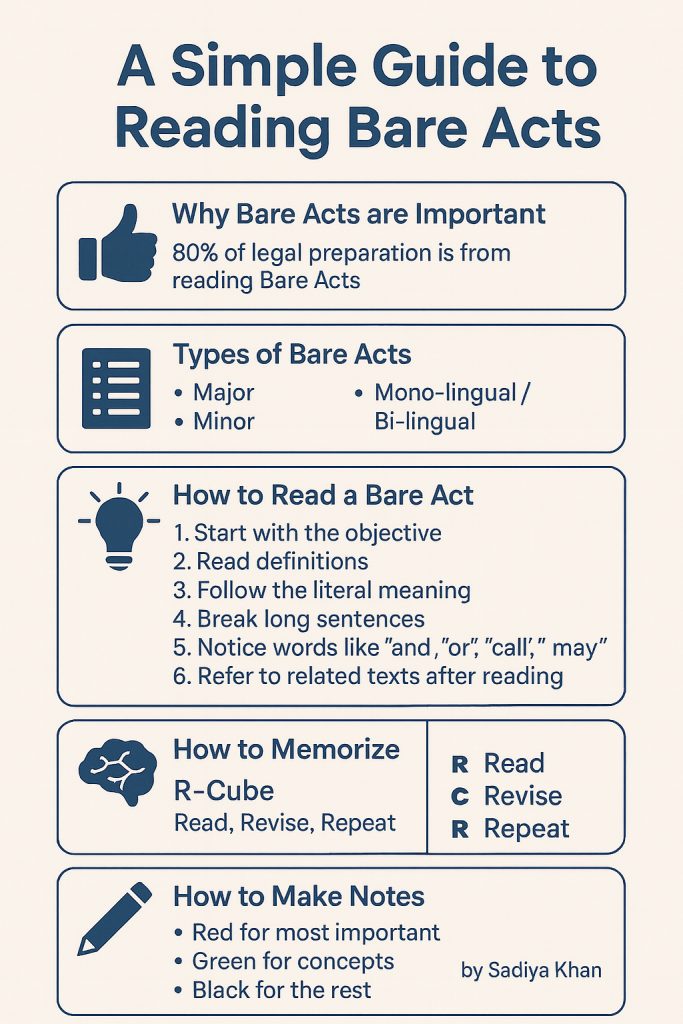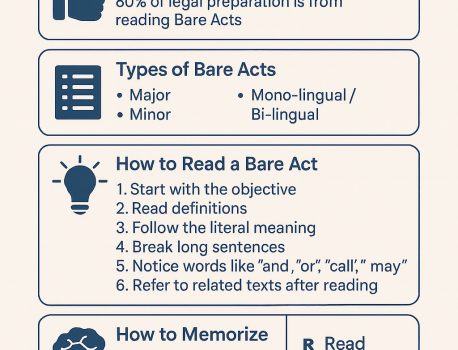A Bare Act is the exact text of a law passed by the legislature. It is the pure law without any explanations or commentary. Lawyers, judges, and law students depend on Bare Acts to understand the real meaning of any statute.
Why Bare Acts are Important
Most of your legal preparation (almost 80%) comes from reading Bare Acts. Books, notes, and commentaries are useful, but they cannot replace the original law. If you want to build a strong foundation in law, start with Bare Acts.
Types of Bare Acts
- Major Bare Acts – like IPC, CrPC, CPC, Evidence Act.
- Minor Bare Acts – like Domestic Violence Act, Indecent Representation of Women Act.
- Local Bare Acts – laws made by individual states.
- Mono-lingual / Bi-lingual Bare Acts – published in English or English + regional language.
How to Read a Bare Act
- Start with the objective of the law.
- Read the definitions and interpretation clauses.
- Follow the literal meaning of the text.
- Break long sentences into smaller parts.
- Pay attention to words like “and”, “or”, “shall”, “may”.
- Refer to related texts only after reading the Bare Act.
How to Memorize
- First, memorize the index.
- Fix a daily schedule for reading sections.
- Revise 3 times more than you read.
How to Make Notes
- Mark frequently asked sections in Red.
- Important concepts in Green.
- Less important but useful sections in Black.
Final Word
Bare Acts are your best friends in law. Read them regularly, make notes, and revise. This simple habit will help you not only in exams but also in your career as a lawyer.
by Sadiya Khan


